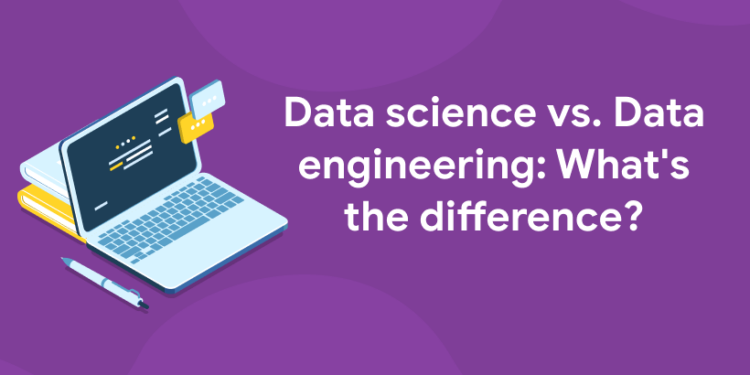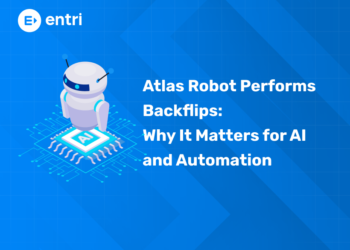Table of Contents
Key Takeaways:
- Data scientists transform data into actionable insights using statistical analysis and machine learning.
- Data engineers build and maintain the scalable infrastructure and pipelines that make data accessible and reliable.
- The roles demand distinct yet complementary skill sets — data science focuses on analysis, engineering on data architecture.
- Cloud-native tools, AI integration, and hybrid skills are shaping careers in both fields.
- Both career paths offer strong growth, competitive salaries, and evolving opportunities with specialization and certifications.
Introduction: Why Understanding This Difference Matters
In the modern data-driven world, businesses generate vast amounts of information daily, from customer transactions to social media interactions. Yet, the real challenge lies not in having data but in making sense of it to drive smarter decisions. Here lies the importance of two pivotal roles in the data ecosystem: data scientists and data engineers. While their titles often get used interchangeably by those new to the field, their core responsibilities and impact on organizations differ significantly. Understanding these differences is crucial if you’re choosing a career path, building a data team, or seeking to harness data for competitive advantage.
Think of data engineering and data science as two sides of the same coin. Data engineers are the builders who ensure data flows seamlessly and securely through systems like highways of information. Meanwhile, data scientists are the explorers decoding patterns within that data to discover insights that inform strategy and innovation. Recognizing this dynamic will empower professionals to develop relevant skills and companies to structure effective teams built around data-driven outcomes.
What Is a Data Scientist?
1: Which of the following algorithms is most suitable for classification tasks?
Role at a Glance
A data scientist’s mission is to turn raw data into meaningful insights by analyzing, modeling, and visualizing information. They use statistics, machine learning, and domain knowledge to solve complex business problems and predict future trends.
Core Responsibilities
- Data Exploration & Cleaning: Prepare and refine data for analysis by handling missing values and detecting outliers.
- Model Development: Build statistical models and machine learning algorithms to predict outcomes or classify patterns.
- Data Visualization: Create charts, dashboards, and reports that communicate insights clearly to business stakeholders.
- Hypothesis Testing: Use experimental design and A/B testing to validate findings and strategies.
- Collaboration: Work with product managers, analysts, and engineers to understand data needs and translate them into actionable projects.
Essential Skills
- Programming languages: Python (Pandas, NumPy, Scikit-learn), R
- Machine learning frameworks: TensorFlow, PyTorch, Keras
- Data visualization tools: Tableau, Power BI, Looker
- Statistical analysis, linear algebra, and probability
- Strong communication skills to convey complex concepts simply
- Familiarity with cloud AI platforms such as AWS SageMaker or Google AI Platform
🚀 Start Coding Today! Enroll Now with Easy EMI Options. 💳✨
Equip yourself with in-demand skills to land top-tier roles in the data-driven world.
Start Learning Now with EMI OptionsWhat Is a Data Engineer?
Role at a Glance
Data engineers design, build, and maintain the data pipelines and architecture that collect, store, and enable access to data at scale. They turn raw data from disparate sources into clean, accessible formats for analysis and AI workloads.
Core Responsibilities
- Data Pipeline Construction: Develop robust ETL/ELT workflows to extract data, transform it, and load it into data warehouses or lakes.
- Infrastructure Management: Build and manage scalable data storage solutions often using cloud services like AWS, Azure, or Google Cloud.
- Automation: Implement workflow orchestration tools such as Apache Airflow to schedule and automate data processing tasks.
- Data Quality and Governance: Monitor data accuracy, consistency, security, and compliance with organizational policies.
- Collaboration: Partner with data scientists and analysts to understand data requirements and optimize data delivery systems.
Essential Skills
- Programming: Python, Java, Scala, SQL
- Big data technologies: Apache Kafka, Hadoop, Spark
- Databases: Relational (PostgreSQL, MySQL), NoSQL (MongoDB, Cassandra)
- Cloud platforms and services: AWS Redshift, Google BigQuery, Azure Synapse
- Containerization and infrastructure-as-code: Docker, Kubernetes, Terraform
Comparing Data Scientists and Data Engineers: A Quick Guide
| Aspect | Data Scientist | Data Engineer |
|---|---|---|
| Primary Focus | Data analysis, modeling, deriving insights | Building data infrastructure, pipeline development |
| Main Tools | Python, R, TensorFlow, Tableau | Kafka, Airflow, Spark, Snowflake, SQL |
| Key Skills | Statistics, ML, visualization, domain expertise | Programming, data architecture, cloud computing |
| Goal | Drive business decisions through data insights | Ensure reliable, scalable data flow and storage |
| Typical Tasks | Data cleaning, predictive modeling, reporting | ETL pipeline coding, system monitoring, data governance |
| Career Path Progression | Data Analyst → Data Scientist → Senior Scientist | Junior Engineer → Data Engineer → Data Architect |
| Collaboration | Works with product owners, analysts, engineers | Interfaces with scientists, IT, and analytics teams |
Why Both Roles Are Essential
- Data Scientists rely on accurate, timely data to create models that help predict customer behavior, optimize operations, or personalize experiences.
- Data Engineers provide the foundational systems that collect diverse data reliably and efficiently, enabling scalable analysis and AI deployment.
- This symbiotic relationship amplifies organizational capabilities, turning raw data into actionable intelligence faster and at scale.
🚀 Start Coding Today! Enroll Now with Easy EMI Options. 💳✨
Equip yourself with in-demand skills to land top-tier roles in the data-driven world.
Start Learning Now with EMI OptionsEmerging Trends in 2025
- AI-Driven Workflows: Automation in data engineering and AI tools assisting data scientists are becoming the norm.
- Cloud-Native Solutions: Adoption of cloud data warehouses (Snowflake, BigQuery) and managed services reduces operational overhead.
- MLOps and DataOps: Growing emphasis on operationalizing machine learning models and managing data workflows.
- Hybrid Roles: Demand rises for professionals with cross-functional expertise in both data engineering and data science.
- Data Governance & Ethics: Stricter regulations and a focus on transparent, unbiased AI require collaboration across teams.
Career Path and Salary Insights
- Data Scientists in India typically earn ₹8-25 LPA, with seniors and specialists earning up to ₹40 LPA, while in the US salaries range from $90K to $150K per year.
- Data Engineers often start higher, between ₹10-30 LPA in India and $100K to $160K annually in the US, thanks to the demand for advanced engineering skills.
- Certifications that boost career prospects include AWS Certified Big Data, Google Professional Data Engineer, TensorFlow Developer Certificate, and Databricks certifications.
- Career growth for both roles includes specialization in AI/ML, cloud architecture, and leadership positions such as Chief Data Officer or Head of Data Engineering.
Tips for Choosing Your Path
- For Data Science: Best for those passionate about statistics, machine learning, and storytelling through data. Requires strong analytical thinking and curiosity.
- For Data Engineering: Ideal for those interested in software development, databases, and architecture. Offers a blend of coding and system-wide thinking.
- Consider building hybrid skills with courses that cover both data modeling and pipeline development to increase versatility.
Learn Data Science with Entri: AI-Powered, Career-Ready Training
Entri’s Data Science course is designed for the demands of 2025 and beyond, offering:
- AI-Integrated Learning: Personalized AI tools to assist with coding, model building, and real-time feedback.
- Hands-On Projects: Work with authentic datasets to prepare for real-world challenges.
- Placement Assistance: Dedicated support connecting you to top companies and interview prep resources.
- Flexible Study Plans: Suitable for beginners and professionals upskilling with easy EMI options.
- Community Support: Access expert mentors and peer groups for ongoing learning.
Start your journey with Entri to gain practical skills and future-proof your career in data science.
Conclusion: Take Charge of Your Data Career Today
Understanding the roles of data scientists and data engineers is key to navigating the growing landscape of data careers. Both paths offer exciting opportunities, but success depends on choosing the role that aligns with your interests and strengths. Whether you’re intrigued by building data systems or turning data into business insights, there is a place for you in this dynamic field.
Make your next move by enrolling in Entri’s AI-powered Data Science course, where you will gain cutting-edge skills, hands-on experience, and career support to thrive in the ever-evolving world of data.
🚀 Start Coding Today! Enroll Now with Easy EMI Options. 💳✨
Equip yourself with in-demand skills to land top-tier roles in the data-driven world.
Start Learning Now with EMI OptionsFrequently Asked Questions
Can I be both a Data Scientist and Data Engineer?
Yes, some roles blend both skill sets, but mastering one deeply usually leads to better career progression. Hybrid roles often focus on machine learning engineering or AI ops.
Do data scientists need programming skills?
Yes, especially Python and SQL are fundamental for cleaning, modeling, and interacting with data tools.
What are the best tools to learn for data engineering in 2025?
Apache Kafka, Airflow, Spark, Snowflake, and cloud platforms like AWS or Google Cloud are essential.
Which role offers better career growth?
Both roles are in high demand; data engineering is growing rapidly due to scaling big data needs, while data science is evolving with more AI adoption.
How long does it take to become job-ready in these fields?
With dedicated learning and projects, 6-12 months can be sufficient to build foundational skills.














